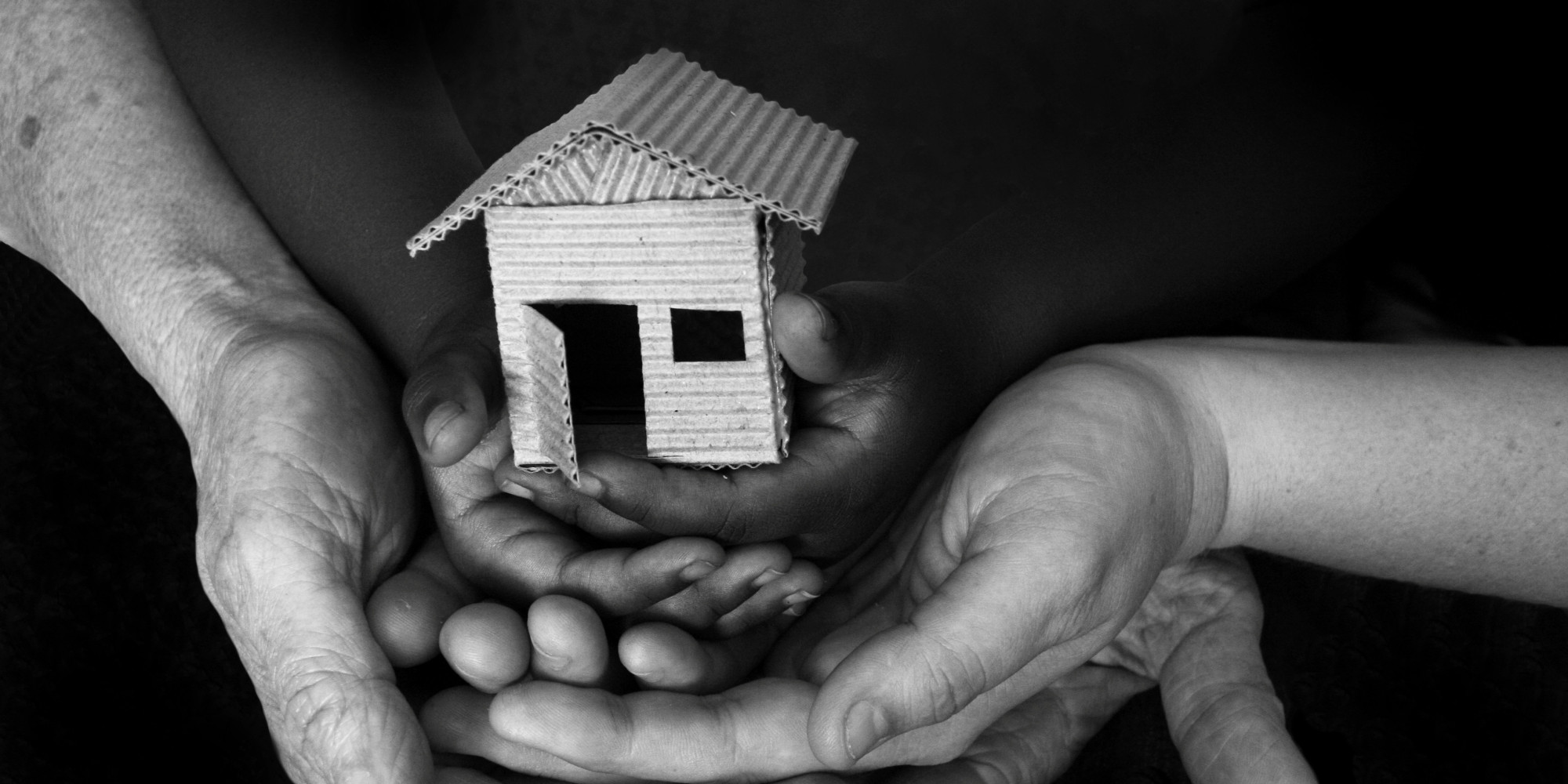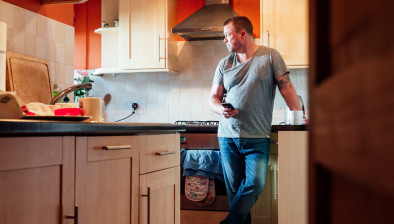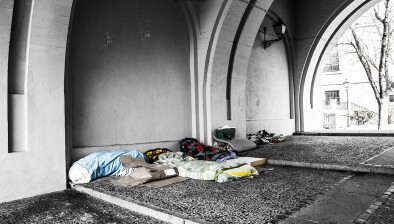Expert review group publishes landmark report into homelessness prevention
Ambitious new measures aimed at widening responsibility for homelessness prevention could stop people from losing their homes and make Scotland a world leader in ending homelessness, according to a new report from an independent group of experts.

With at least 8% of the Scottish population (1 in 12 people) having experienced homelessness, the Homelessness Prevention Review Group feels there is clear need to change the system to stop people from losing their homes in the first place.
The group was set up at the request of the Scottish Government and convened by the charity Crisis to take forward the work of the Homelessness and Rough Sleeping Action Group on preventing homelessness.
In its new report, the group recommends that action to prevent homelessness would start up to six months before someone faces losing their home.
This would mean that public bodies, such as health services, should ask about people’s housing situation to identify any issues at an early stage and act where a problem exists.
They would then work together with housing professionals to ensure that people get help early and do not lose their home unnecessarily. The proposals, if implemented, would ensure that no one leaves an institution, such as prison or hospital, without somewhere to sleep that night.
The group proposes clarifying the current law and requiring local authorities to take specific steps to prevent homelessness, building on recent developments in Wales and England. This would mean that once again Scotland has the strongest protections in Great Britain for people facing the prospect of homelessness.
The recommendations would mean that people facing homelessness should have greater choice and control in where they live and have access to the same options as other members of the public. They set out protections which must be in place to ensure that an individual’s housing is stable and meets their needs, minimising their future risk of homelessness.
The group was chaired by Professor Suzanne Fitzpatrick of Heriot-Watt University and was made up of local authority bodies, representatives from the housing and homelessness sectors and health and social care.
It was supported by the Prevention Commission, a group of people with lived and frontline experience of homelessness, whose views shaped the proposals.
Commenting on the report, housing minister Kevin Stewart said: “Ending homelessness is a priority for the Scottish Government so I welcome the recommendations in this report, which focuses on the importance of preventing homelessness from happening in the first place. The report also highlights the importance of a whole-system, person-centred approach to our goal of preventing homelessness, for example through the work of health, education and justice services.
“This report was developed in consultation with frontline workers and people with lived experience of homelessness as well as so many organisations from across the public and third sector, and I want to thank everyone involved. Crisis in particular has provided significant resources to this work and I am grateful for the commitment they have shown. I now look forward to working with COSLA and all our other partners to discuss how we can put these proposals into action.”
Prevention Review Group chair Professor Fitzpatrick said: “While we have strong protections in place to help individuals and families when they are at imminent risk of losing their home, we have laid far less emphasis to date on effective work to prevent homelessness happening in the first place. This means it is all too common for someone to reach crisis point before they get the help they need.
“It was this need to act earlier and prevent people from ever having to experience the trauma of homelessness, which drove the work of the Prevention Review Group.
“Our work was guided by three principles: that there should be a collective responsibility across public services to prevent homelessness; that intervention to prevent homelessness should start as soon as possible; and that those at risk of homelessness should have greater choice in where they live and access to the same options as other members of the public.
“The homelessness system should become the safety net it was intended to be rather than a default response to housing problems. The recommendations in this report hold the potential to radically change the face of the homelessness system in Scotland.”
As well as new shared public responsibilities to prevent homelessness, the group made recommendations in some specific areas:
- Where people needing homelessness assistance have complex needs requiring input from multiple services, a case co-ordination approach should be put into place
- Health and social care partnerships should co-operate with the local authority to plan for the needs of applicants for homelessness assistance who may have health and social care needs
- 16 and 17-year-olds who are at risk of homelessness should be assisted by children’s services rather than adult services
Recommendations in relation to support for victims of domestic abuse include:
- Support and security measures to remain safely in their own home where this is their preference, including access to free legal aid to get an exclusion order
- Social landlords should put in place protocols to address housing issues relating to domestic abuse
Lisa Punton, Prevention Commission member, said: “Having worked in the sector for more than 10 years I have become increasingly frustrated with the existing legislative framework. In providing such a strong safety net for people experiencing homelessness something of what we were trying to achieve, which is to prevent it, was lost.
“If we really want to end homelessness those with lived experience must always have a seat at the table. People who have experienced services can tell us how these impact on their lives amid crisis and trauma.”
Cllr Kelly Parry, COSLA community wellbeing spokesperson, said: “The publication of the report from the Prevention Review Group is welcomed, and I am grateful to members of the group and those who have supported its work for their efforts. I am particularly grateful to those who contributed their own lived experience of homelessness to inform the work of the group – it is important we keep their voices at the centre of our considerations.
“Local Government is committed to ending homelessness, and fundamental to that is preventing it happening in the first place. We know that the impacts of the COVID-19 pandemic have not been felt equally across society – with those who are facing poverty and social inequality most affected. The importance of sectors, organisations, and individuals working together is clear, and as we work with our communities to rebuild and recover, we have the opportunity to put the needs of those most at risk at the centre. The recommendations within the report offer insight on how we do this together.
“Local Government will work with the Scottish Government over the coming months, to consider the proposals within the report seeking further input and consultation with partners.”
Core working group members of the Prevention Review Group, chaired by Professor Suzanne Fitzpatrick, include:
- Cllr Elena Whitham, East Ayrshire Council / COSLA
- John Mills, Fife Council / ALACHO
- Susanne Millar, Glasgow City HSCP
- Matt Downie, Crisis
- Gordon MacRae, Shelter Scotland (later replaced by Jess Husbands, Adam Milne)
- Sally Thomas, SFHA (later replaced by Jeremy Hewer)
- Callum Chomczuk, CIH
- Maggie Brunjes, Homeless Network Scotland
- Tom Mullen, University of Glasgow
- Ruth Whatling, Scottish Government
- Kathy Cameron, CoSLA (later replaced by Katey Tabner, Laura Caven)







